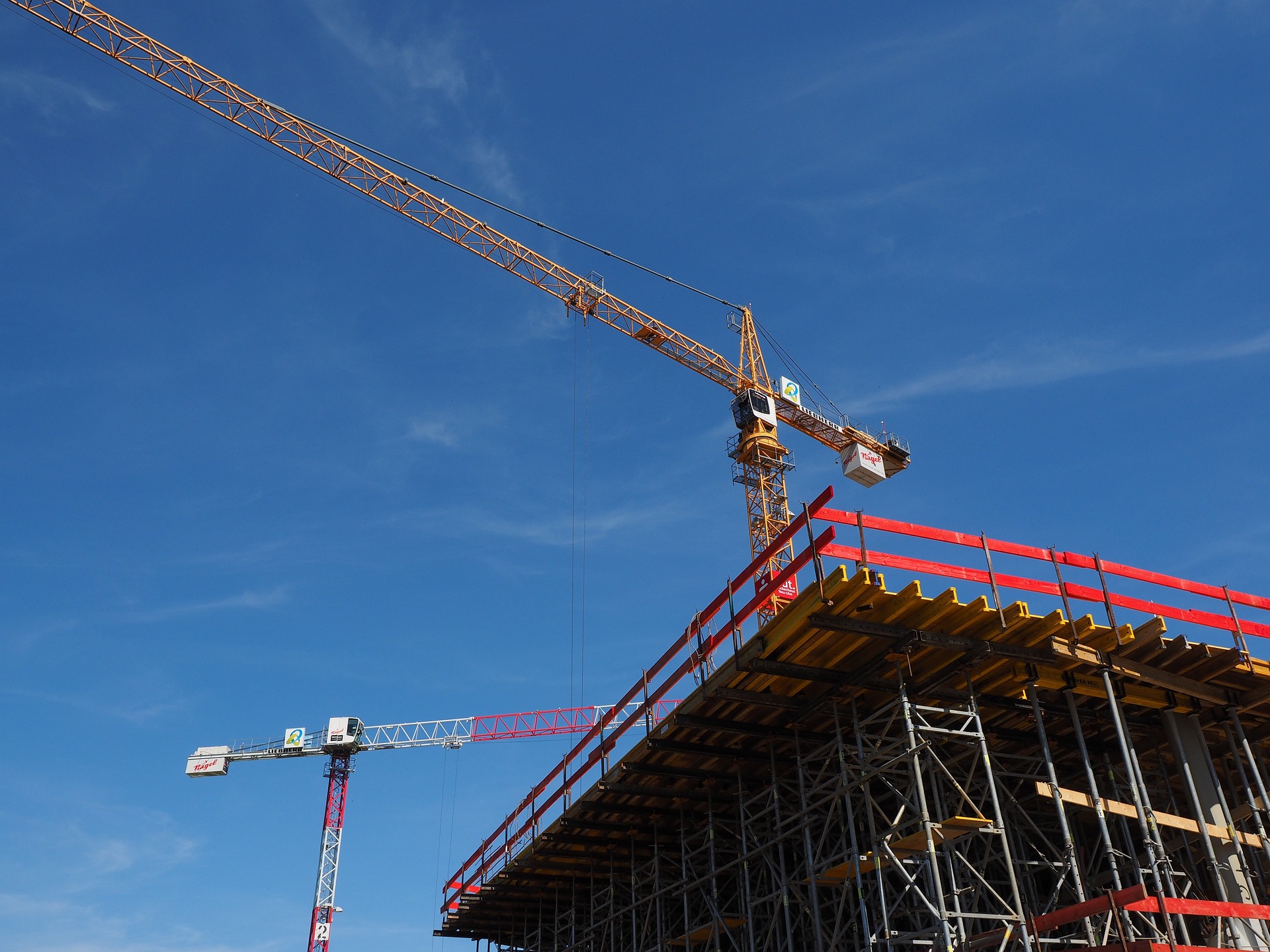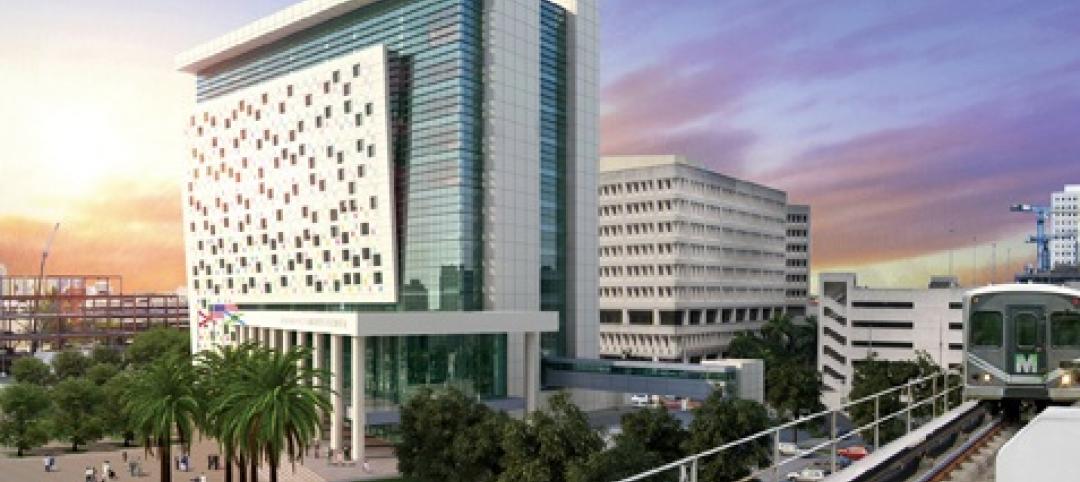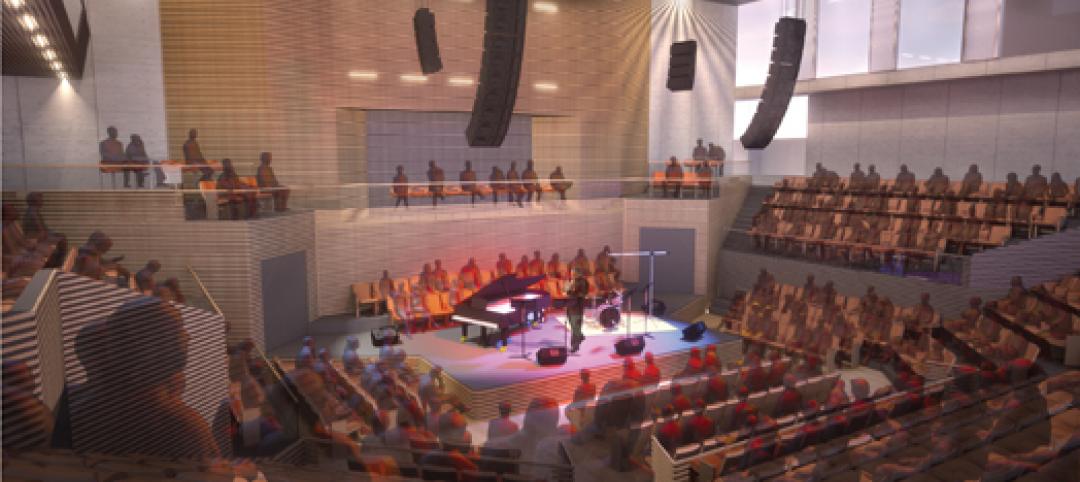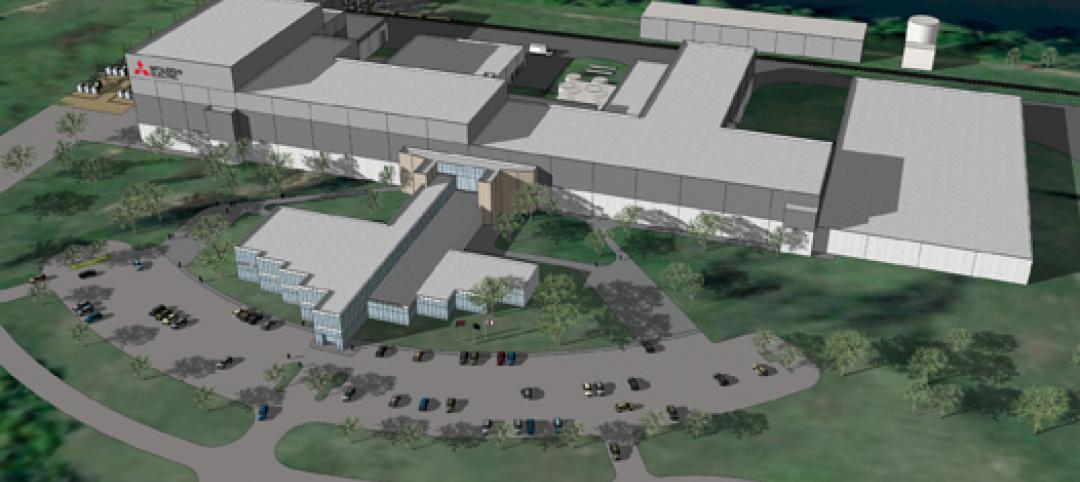Associated Builders and Contractors reported that its Construction Backlog Indicator declined to 8.4 months in January, according to an ABC member survey conducted from Jan. 22 to Feb. 4. The reading is down 0.6 months from January 2023.
Backlog increased to 10.9 months in the heavy industrial category, the highest reading on record for that category, and is 2.5 months higher than in January 2023. Backlog is down on a year-over-year basis in the commercial/institutional and infrastructure categories.
ABC’s Construction Confidence Index readings for sales and staffing levels increased in January, while the reading for profit margins declined. All three readings remain above the threshold of 50, indicating expectations for growth over the next six months.
“As predicted, performance in the nonresidential construction sector is becoming more disparate across segments,” said ABC Chief Economist Anirban Basu. “For much of the pandemic recovery period, contractors in virtually all segments were indicating stable to rising backlog. That remains the case for contractors most exposed to the nation’s industrial production. Reshoring and near-shoring continue to drive construction spending.
“In other categories, however, including those most interest rate-sensitive, activity appears to be slowing,” said Basu. “Developer financing has become both more expensive and more difficult to obtain over roughly the past year, in part because of rising office vacancy in many markets. That helps to explain declining backlog in the commercial category. The decline in infrastructure-related backlog may be due only to seasonality, however. There is every reason to believe that contractors specializing in public works will have a very busy year.”
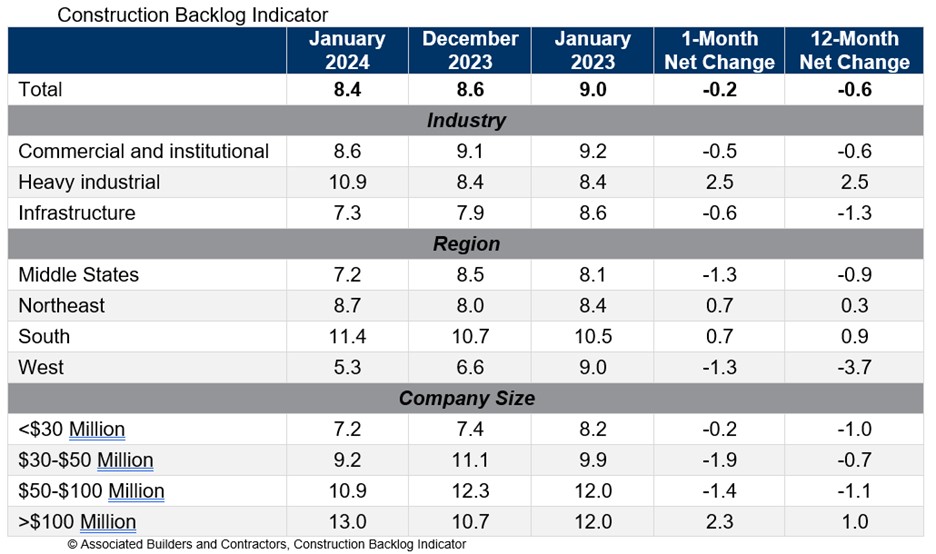
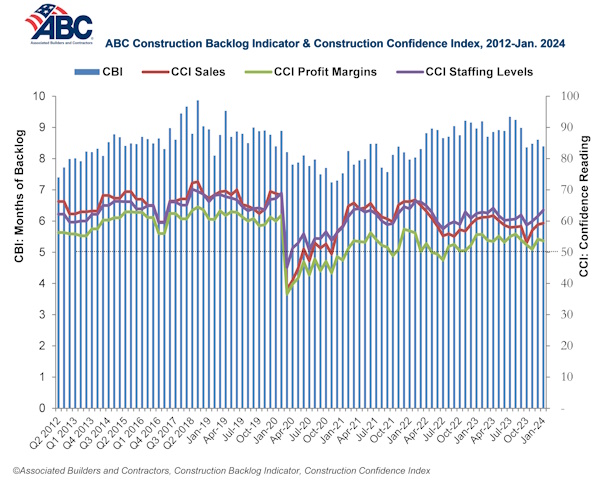
Related Stories
| Apr 12, 2011
Miami courthouse design does justice to children and the environment
Suffolk Construction broke ground recently for the Miami-Dade County Children’s Courthouse, a $328 million project the firm has a 30-month contract to complete.
| Apr 12, 2011
Long-awaited San Francisco center is music to jazz organization’s ears
After 28 years, SFJAZZ is getting its first permanent home. The San Francisco-based nonprofit, which is dedicated to advancing the art of jazz through concerts and educational programs, contracted local design firm Mark Cavagnero Associates and general contractor Hathaway Dinwiddie to create a modern performance center in the city’s Hayes Valley neighborhood
| Apr 12, 2011
Mitsubishi commissions electric power manufacturing plant in Memphis
Greenville, S.C.-based design and construction firm O’Neal Inc. is providing design, engineering, procurement, and construction services for Mitsubishi Electric Power Products.
| Apr 12, 2011
BIM Grows Up: Separating Hype from Reality in a 3D World
While BIM adoption still lags in both design and construction, some enterprising owners, architects, and contractors are unlocking the potential of this dynamic technology.
| Apr 12, 2011
Metal cladding: Enhancing design with single-skin panels, MCMs, and IMPs
Single-skin metal panels, metal composite panels, and insulated metal panels can add both aesthetic and functional value to your projects, if you use them correctly.
| Apr 12, 2011
American Institute of Architects announces Guide for Sustainable Projects
AIA Guide for Sustainable Projects to provide design and construction industries with roadmap for working on sustainable projects.
| Apr 5, 2011
What do Chengdu, Lagos, and Chicago have in common?
They’re all “world middleweight cities” that are likely to become regional megacities (10 million people) by 2025—along with Dongguan, Guangzhou, Hangzhou, Shenzhen, Tianjin, and Wuhan (China); Kinshasa (Democratic Republic of the Congo); Jakarta (Indonesia); Lahore (Pakistan); and Chennai (India), according to a new report from McKinsey Global Institute: “Urban World: Mapping the economic power of cities”.
| Mar 22, 2011
San Francisco ready to test hiring law
San Francisco's new construction law, billed as the nation’s toughest local hiring ordinance, establishes strict requirements for how many work hours on city-financed projects must be completed by city residents, starting with 20% this year. It also requires that a set percentage of hours be performed by low-income workers. The requirements apply to municipal construction projects worth more than $400,000 within 70 miles of the city.


